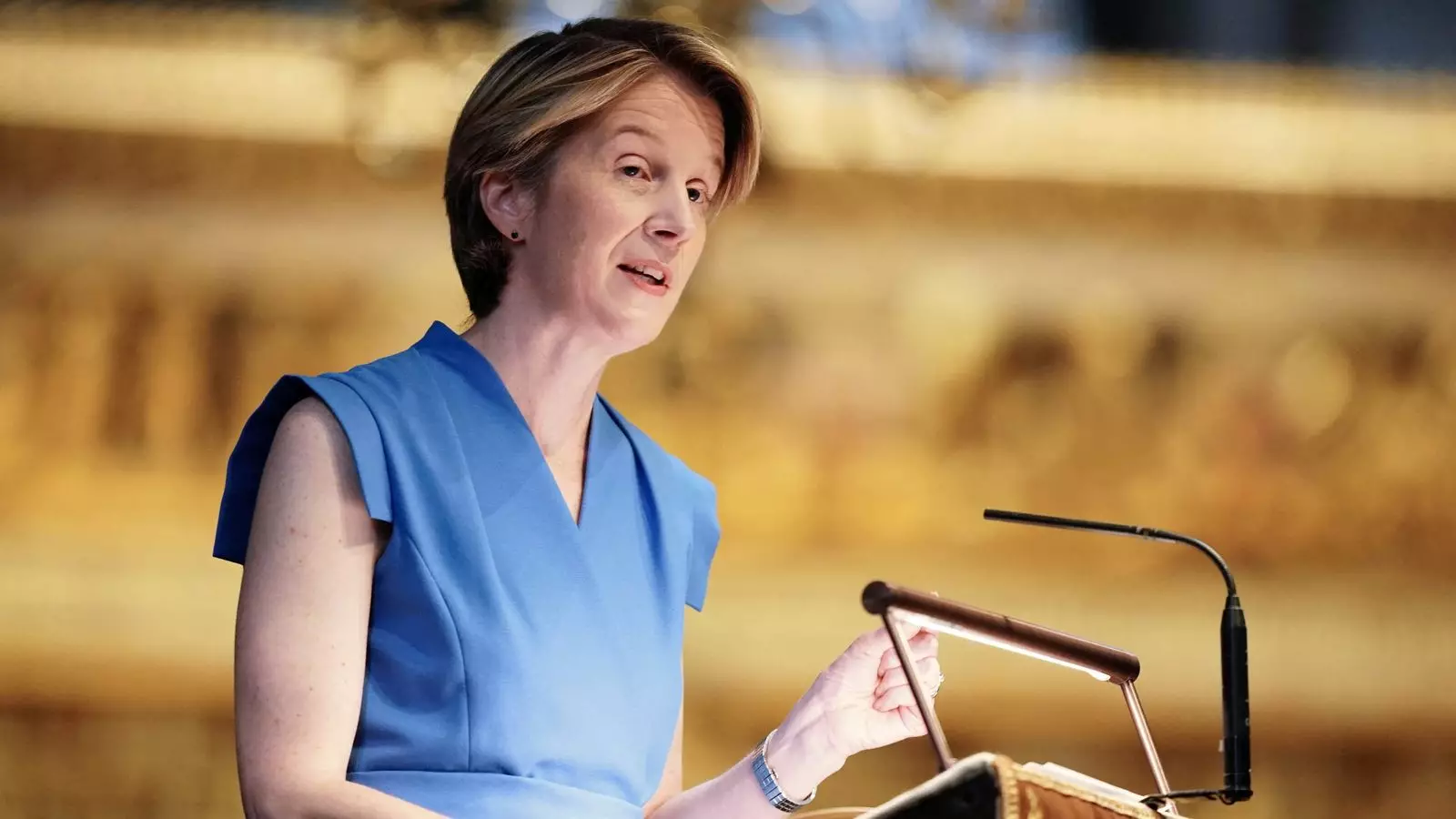The recent news of Amanda Pritchard’s decision to step down as chief executive of NHS England marks a significant turning point in the organization’s leadership. As the first woman to hold this position since its inception, Pritchard has navigated one of the most tumultuous periods in NHS history, particularly during and after the COVID-19 pandemic. Her term began in 2021, following an extensive career within the NHS, including pivotal roles such as chief operating officer and head of Guy’s and St Thomas’ NHS Foundation Trust. Her resignation, while surprising, comes at a time characterized by both achievements and challenges within the healthcare system.
Pritchard’s tenure has not been without its criticisms. Recently, she faced pointed allegations from members of the cross-party Commons public accounts and health and social care committees regarding her performance. The MPs expressed concerns over her alleged inability to generate the necessary “drive and dynamism” for reform, which raises broader questions about accountability and leadership effectiveness in a crucial public sector organization. Critics argue that transformative change is vital in a health system traditionally burdened by inefficiencies, budget constraints, and increasing demand for services. Such criticisms reflect a larger discontent with the status quo of the NHS, a sentiment echoed in recent discussions surrounding healthcare delivery across the United Kingdom.
In her statement announcing her resignation, Pritchard acknowledged the difficulties of her decision, highlighting a sense of personal reflection on her journey. “It has been an enormous privilege to lead the NHS in England,” she stated, recognizing both the challenges and successes encountered during her leadership. Pritchard emphasized a belief in the structured progress the NHS is making towards recovery and the implementation of the Ten Year Health Plan, suggesting she views her departure as a strategic move aligned with broader organizational goals. This perspective underlines an essential aspect of leadership—knowing when to hand over the reins to facilitate sustainable growth.
Despite the mixed reviews of her performance, praises have not been lacking for Pritchard’s contributions. Health Secretary Wes Streeting, in a public endorsement, recognized the significance of her leadership throughout challenging times, particularly in navigating the complex landscape shaped by COVID-19. Pritchard remains a figure of integrity and commitment, qualities that have been essential for steering NHS England through “the biggest health emergency for our country in modern history.” Such acknowledgments from fellow leaders underscore the multifaceted nature of leadership within public health.
With Pritchard stepping down, Sir James Mackey is set to assume the role of chief executive as a transitional leader starting April 1. Currently serving as the chief executive of Newcastle Hospitals Foundation Trust, Mackey’s appointment signifies a shift that could redefine strategic priorities amidst ongoing recovery efforts. His background as the national director of elective recovery suggests a focus on accelerating service restoration and operational efficiency, critical elements for an NHS striving to meet patient expectations post-pandemic.
The departure of Amanda Pritchard opens a fresh chapter for NHS England, one that bears the weight of both high expectations and structural challenges. The next phase will require resilience, innovation, and dedicated leadership to address the myriad issues facing the NHS, from service overhauls to public satisfaction. As the health sector grapples with these complexities, the incoming leadership will inevitably face intense scrutiny and high demands, further illustrating the dynamic landscape of healthcare management in England.
Pritchard’s resignation marks the end of a pivotal era—one that reflects both remarkable challenges and noteworthy accomplishments. The future of NHS England now lies in the hands of new leadership, which will require bold and visionary attempts to ensure that the organization not only survives but thrives in an ever-evolving healthcare landscape.

Leave a Reply